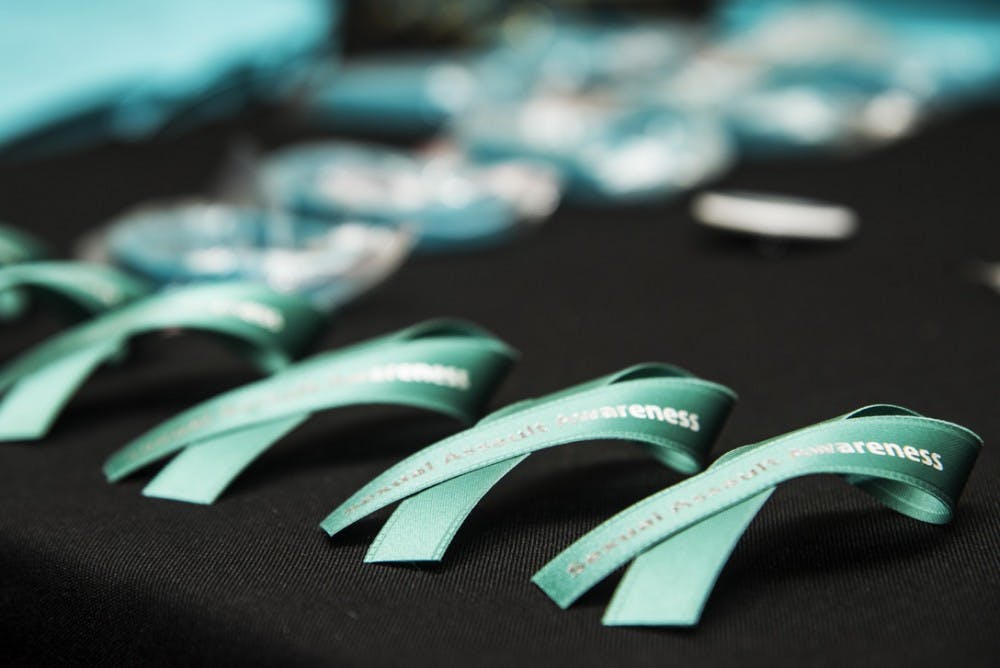Life here at Princeton, during my first year, runs quickly. Like many people, I feel like I’m constantly looking ahead — to the next assignment, the next tutoring shift, the next club meeting. Times to reflect are few and far between. Some of my friends complain about this, and I understand their complaints. But I don’t really miss the free time. I’m grateful for how Princeton keeps my mind busy. When I have too much time on my hands, no matter how hard I try to avoid it, my thoughts tend to gravitate towards the one thing I don’t want to think about.
As a sexual abuse survivor, moments of quiet can mean moments of reliving memories no one deserves to have. Hurt doesn’t bury itself, and it doesn’t easily fade away. I know it will get better one day, but for now, conversations that are buzzwords for others such as the #MeToo movement resonate in a distinct place for me, a complicated one.
Certainly, the #MeToo movement overall has been a blessing to me over and over again. It’s taught me to learn to love myself again and to move past the ingrained self-blame and the helpless loneliness that used to come over me in waves.
Sometimes, however, parts of the media portrayal of #MeToo sit with me the wrong way, even when I don’t want to admit it. I firmly believe that rapists are monsters. I believe my rapist was a monster. But I think there’s a fine line inherent in our current framework of viewing abusers that sometimes, not all times, can be tripped over. Labeling someone and then calling them “cancelled” feels so permanent. Maybe not all people deserve that. Maybe people can change. Maybe even the boy who raped me.
He apologized to me, once. I had hoped for so long that one day he might — that if any part of him had cared, ever, he would come up to me a changed person and admit what had happened. But he didn’t use the word. Rape. Instead he just slid a short message in my DMs saying he was sorry for some of the hurt he had caused and the person who had done that “wasn’t really him.” I knew then he hadn’t changed. This boy sat next to me in multiple classes every day at school. If he wasn’t the same person he had been, he could have said something to me in person, and he would have used the word. I thought the act of forgiveness would take some of the weight off me, and I desperately wanted someone to forgive. But he wasn’t deserving of it. He hadn’t changed — not yet.
This being said, what should I do if he does change? What would him “changing” even really mean? So much was taken from me by this boy. My health. My self-esteem. My belief in God. After it first happened, I wanted so badly for people to hate him like I did. It was so hard to see mutual friends stand by him. I spent so many hours crying — at home, at school, in therapy. I was too afraid to talk about what happened to other people in explicit terms, but at the same time, I needed to be heard. I needed for someone to hear me and for someone to believe me. I wished I was brave enough to tell someone, and for that someone (anyone, really) to cancel him.
Upon reflection, I’m not sure if I was really in a position back then when I received his initial apology to forgive him for what he had done and for what I had lost. I wanted to be strong, stand up for myself, and yell. I wanted to somehow be able to take back what had been taken from me.
But maybe I can’t do that. I can’t go back to who I was. I’m not the same person anymore. Recognizing how much I have changed, how could I think that he would just remain the same person forever? Everyone is human. Everyone can grow, can learn, and can become a new and better person.

What if the bravest thing I can do right now is realize that one day, I might hear that he has really changed? If I heard that, maybe I could take a step back. I could be proud of that new person, whoever he might be, if he ever might be. I could leave my anger to who had been. If who had been was ever really “cancelled,” and he leaves that self behind and grows, he could become someone very different. He could become someone new.
I’m saying this as a survivor. Cancelling someone doesn’t need to last forever. I’d hate to say that we couldn’t ever move past our pasts. I believe, somewhere deep down, that all people have the potential to change, to grow, and to develop. Let’s make sure that we are giving the people who are willing to admit their mistakes and take responsibility that chance.
Anna McGee is a first year from Paducah, KY. She can be reached at amcgee@princeton.edu.









